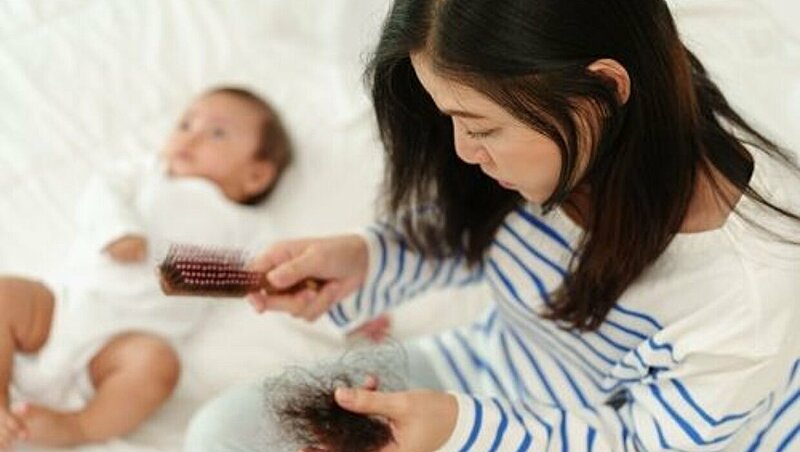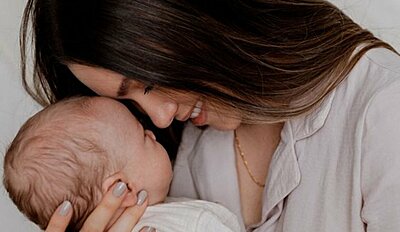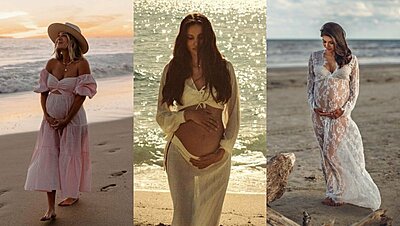Becoming a new mom is amazing, but it also comes with its own challenges; one of which can be postpartum hair loss. If you’re noticing more hair in the shower or on your brush a few months after giving birth, you’re not alone. Many new moms experience this, and while it can be a bit unsettling, it’s perfectly normal. Here’s why it happens and some simple ways to manage it!
Why Does Postpartum Hair Loss Happen?
During pregnancy, your hormone levels, especially estrogen, increase a lot. This extra estrogen keeps your hair from shedding as much as usual, which can make it feel fuller and thicker. But once your baby is born, those hormone levels start to drop back to normal. When that happens, all that hair that wasn’t shedding during pregnancy finally starts to fall out, which usually happens about three to four months after giving birth. This is what we call "postpartum shedding."
It’s important to remember that this is temporary! For most women, hair growth goes back to normal within six to twelve months.
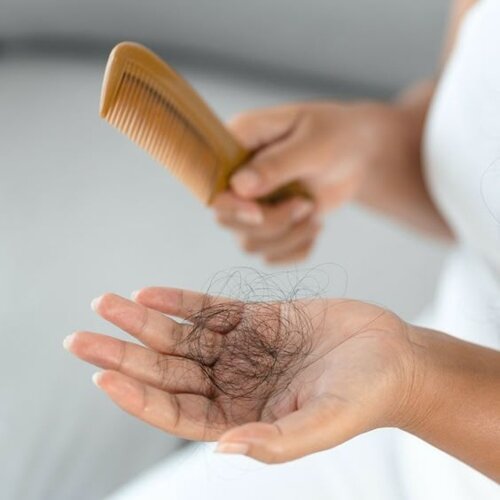
How to Manage Postpartum Hair Loss
While this phase can be frustrating, there are a few things you can do to help manage postpartum hair loss and keep your hair as healthy as possible.
1. Choose Foods That Nourish Your Hair
Good nutrition can help support hair health. Try to include foods rich in vitamins A, C, D, and E, along with minerals like zinc, biotin, and omega-3s. These nutrients are great for your hair and can help promote growth.
Thinning Hair? Discover the Causes and Effective Treatments!
2. Treat Your Hair Gently
Your hair might feel more delicate right now, so be gentle with it. Try to avoid tight hairstyles like ponytails or buns, as they can put stress on your hair. Use a gentle shampoo and conditioner, and avoid rubbing your hair too hard with a towel. The more gentle you are, the better!
3. Avoid Heat and Chemicals
If you can, try to skip the heat styling tools like straighteners, curling irons, and blow dryers for now. Also, avoid chemical treatments, like coloring or perming, until your hair has had a chance to bounce back. If you do need to use heat, make sure to apply a heat protectant first.
Love Your Locks: 10 Autumn Tips to Repair Summer Damage
4. Think About Postnatal Supplements
There are postnatal vitamins that include hair-friendly nutrients like biotin, vitamin D, and folic acid. If you’re considering taking one, check with your doctor, especially if you’re breastfeeding, to make sure it’s safe.
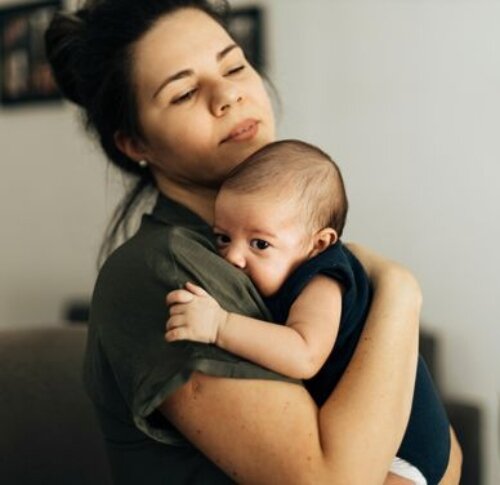
5. Massage Your Scalp
Massaging your scalp can help stimulate blood flow, which is great for hair growth. You can use your fingers or a scalp massager to do this. Plus, it feels really relaxing and can help relieve some tension.
6. Try Different Hairstyles and Accessories
If you’re feeling self-conscious about thinning hair, there are a few tricks you can try! Layered cuts, loose waves, or soft curls can give the illusion of more volume. You can also experiment with headbands, scarves, or hats to change up your look.
8 Ways to Protect Your Hair While You Sleep
7. Give It Time
Most importantly, be patient. It can be tough to wait, but remember that this is just a phase. Most moms find that their hair returns to its regular growth cycle within a year, so focus on caring for yourself and giving your body time to recover.
When to See a Doctor
If your hair loss feels extreme, lasts longer than a year, or if you notice other symptoms like feeling tired, gaining weight, or changes in your skin, it might be worth checking in with your doctor. Sometimes these can be signs of thyroid issues or other conditions that may need attention.
Postpartum hair loss can be frustrating, but try to remember that it’s only temporary. By being gentle with your hair, eating well, and taking care of yourself, you can get through this phase. Your hair will likely return to its regular cycle soon.


